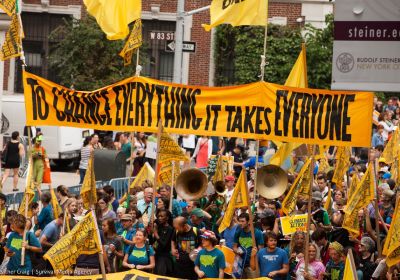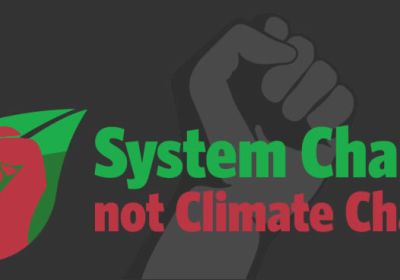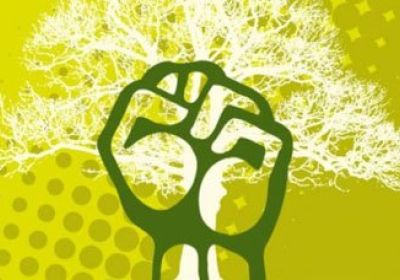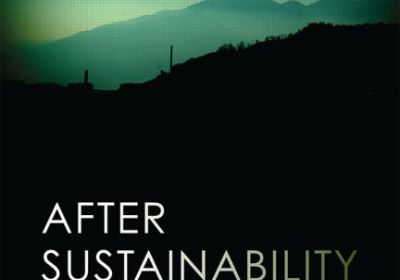-
-

Ian Angus, editor of Climate and Capitalism, compiles a new list of essential readings for ecosocialists.
-

Two decades ago, barely anyone called themselves an ecosocialist. Yet today the term is widespread on the left.
This comes from an awareness that any viable alternative to capitalism must do away with the current destructive relationship between human society and the wider natural world. It also stems from a recognition that too many socialists in the 20th century failed to take environmental issues seriously.
-
-

Climate & Capitalism editor and author of A Redder Shade of Green: Intersections of Science and Socialism Ian Angus takes a look at six new books on Marx’s ecosocialist views, climate change and health, theory and action, inevitability versus contingency in evolution, new politics and the meaning of Marx’s Capital.
-

Ian Angus takes a look at five new books of interest to ecosocialists, looking at urban climate change, past mass extinctions, tropical rainforests, religious anti-science, and the end of Arctic ice. Angus is the editor of Climate and Capitalism, where this list first appeared, and author of the new book A Redder Shade of Green.
-

The devastating hurricanes that hit the southern US and the Caribbean, and the catastrophic flooding in South Asia, have highlighted the worsening reality of global warming-related extreme weather.
The worsening reality of weather-related disasters was explicitly recorded in a little-noticed United Nations Office for Disaster risk reduction report The Human Cost of Weather-Related Disasters: 1995-2015. The report noted that both the number of extreme-weather events, and the number of people affected, has risen dramatically over the past two decades.
-

Below are five new books for the bookshelves of ecosocialists. They cover climate change, the Anthropocene, water and food — plus an inspiring account of the Russian Revolution by award-winning science fiction writer China Mieville.
-

On Links International Journal of Socialist Renewal readers can find an interview with leading ecosocialist voice Daniel Tanuro as well as articles looking at the ongoing fallout of the Brexit vote and the origins of arguably the most famous slogan in revolutionary history: "All power to the Soviets!"
-
-
-

Five new books for green lefts and left greens — as compiled by ecosocialist site Climate & Capitalism, which is edited by Facing the Anthropocene author Ian Angus.
Ecosocialism
Ecosocialism



